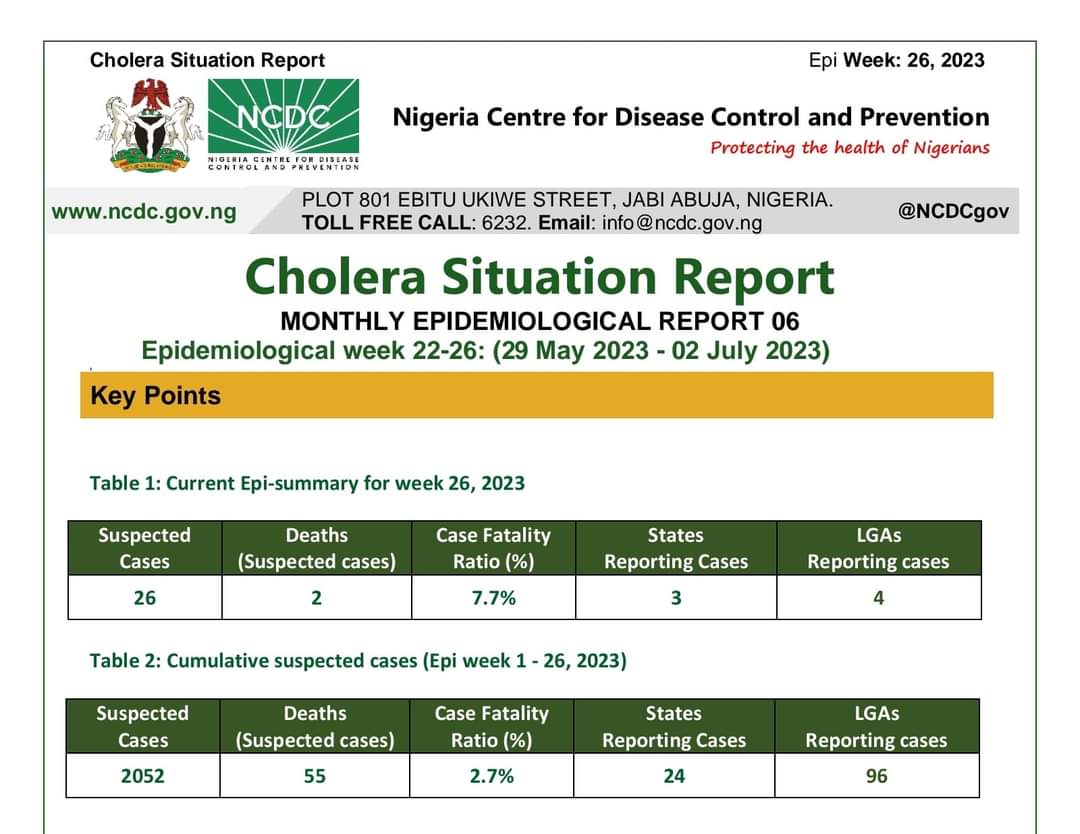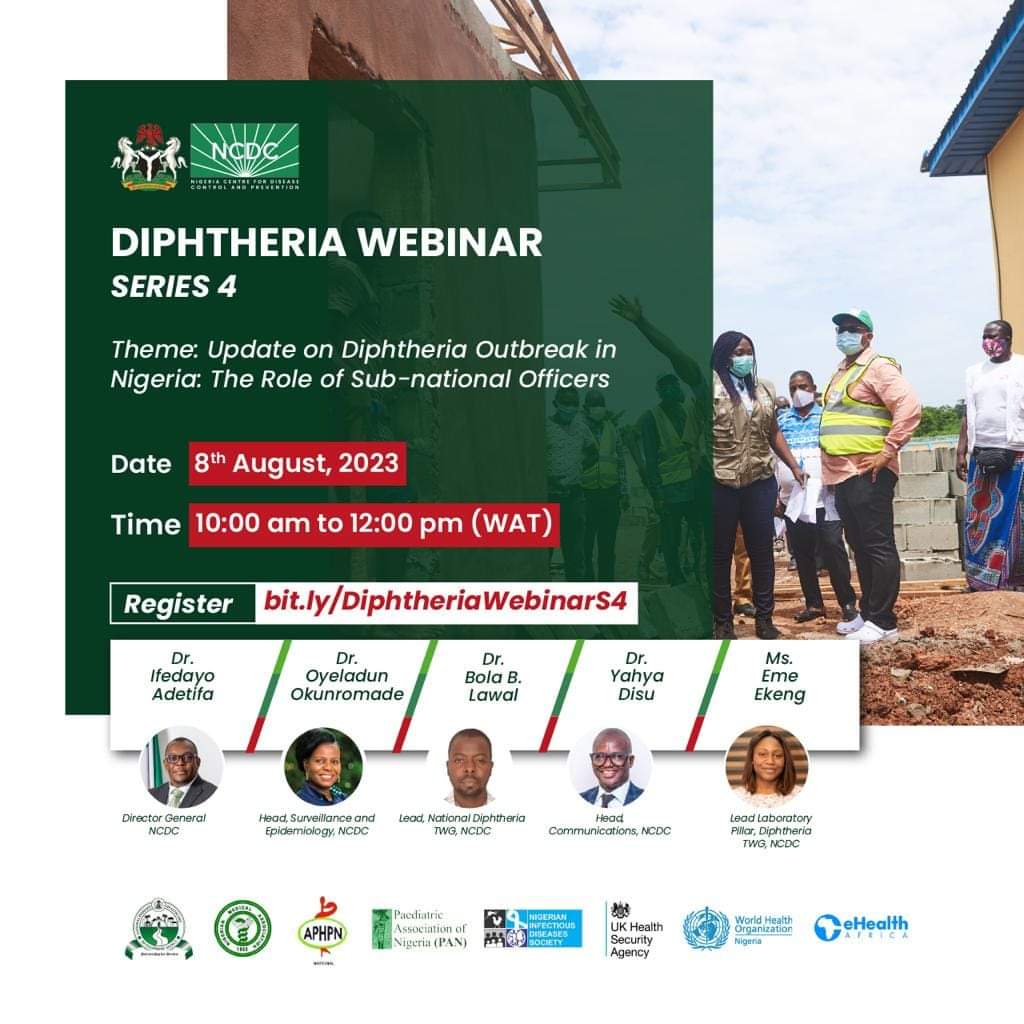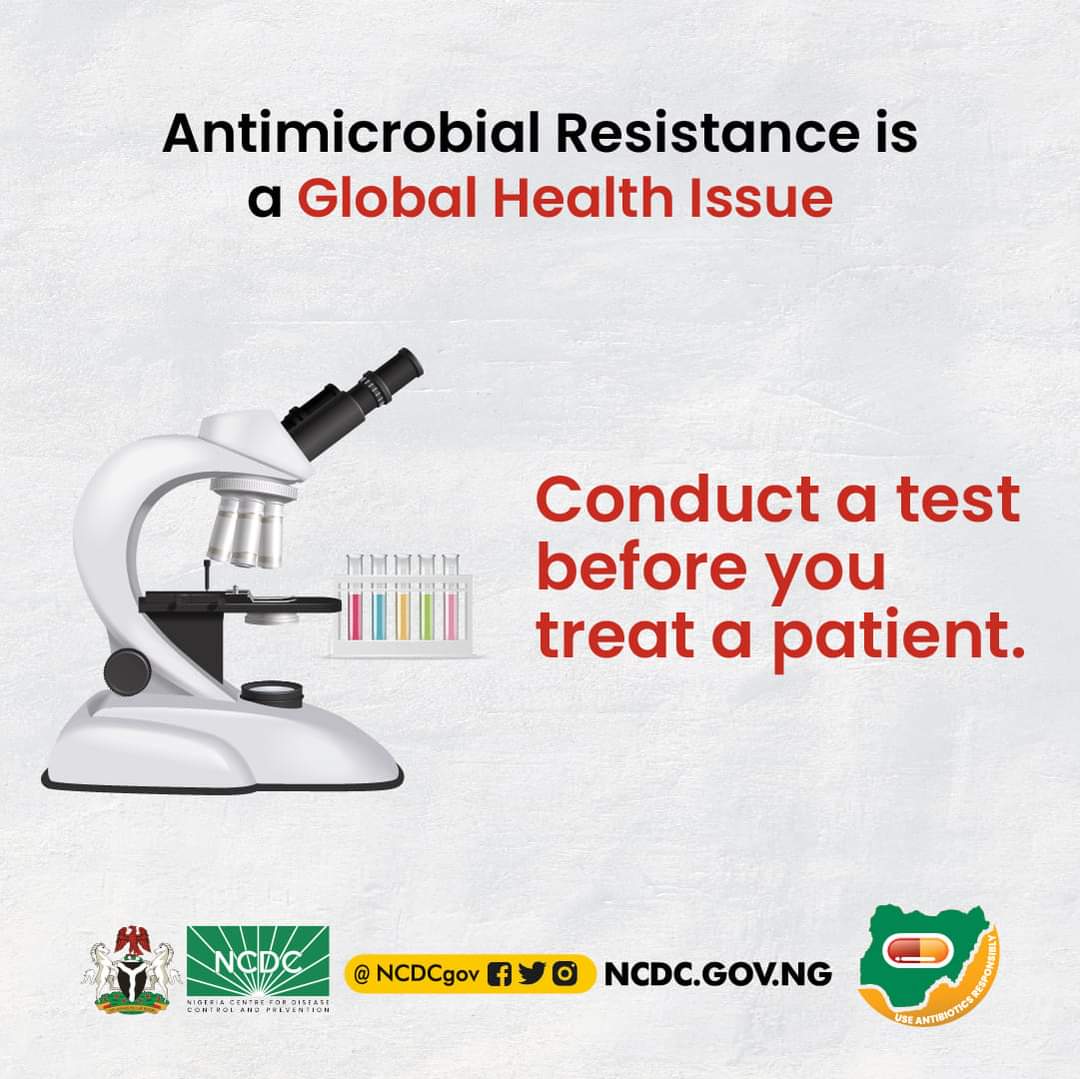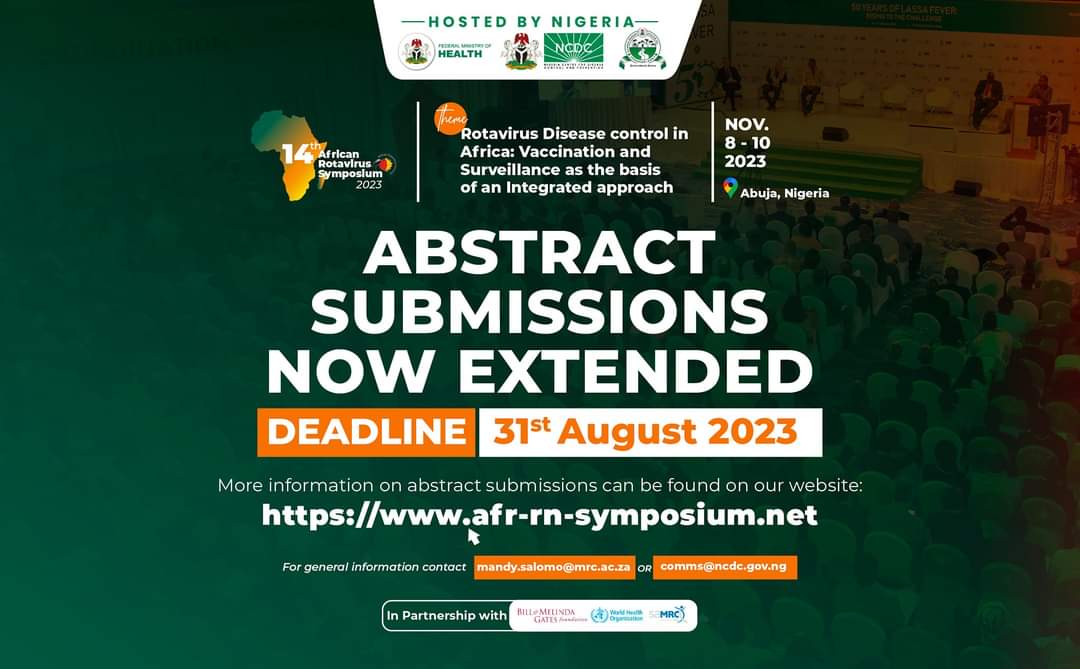NCDC Opens Its Portal for the Recruitment of Health Workers 2023: Opportunities and Guidelines
Introduction:
The National Center for Disease Control (NCDC) has recently announced the much-anticipated opening of its recruitment portal for health workers in the year 2023. This development comes as a golden opportunity for healthcare professionals to join the frontlines of the nation’s efforts in combating diseases, conducting research, and providing crucial public health services. In this blog post, we will delve into the details of this recruitment drive, the roles available, and important guidelines for prospective applicants.

Why This Recruitment Matters: As the world grapples with ever-evolving health challenges, the significance of well-trained and motivated health workers cannot be overstated. The NCDC plays a pivotal role in disease surveillance, outbreak response, research, and health system strengthening. Joining the NCDC team provides a unique chance to make a real impact on public health at a national level.
Available Roles: The NCDC recruitment drive for 2023 encompasses a diverse range of roles, catering to various skill sets within the healthcare domain. Some of the prominent roles include:
- Epidemiologists: Responsible for tracking disease patterns, investigating outbreaks, and analyzing health data to guide public health policies.
- Laboratory Scientists: Essential in conducting diagnostic tests, identifying pathogens, and contributing to research on emerging diseases.
- Medical Officers: Frontline healthcare providers involved in clinical care, patient management, and disease prevention strategies.
- Public Health Specialists: Experts in designing and implementing health programs, promoting community health, and creating awareness campaigns.
- Data Analysts: Skilled professionals who analyze and interpret health data, helping NCDC make informed decisions.
Guidelines for Prospective Applicants: If you’re interested in applying for a position with the NCDC, here are some crucial guidelines to consider:
- Review Eligibility Criteria: Carefully read the eligibility criteria for the specific role you’re interested in. Ensure that you meet the educational qualifications, experience requirements, and any other prerequisites.
- Prepare a Comprehensive Resume/CV: Highlight your relevant education, professional experience, certifications, and any accomplishments that showcase your suitability for the role.
- Craft a Compelling Cover Letter: Tailor your cover letter to the specific role and explain why you’re interested in working with the NCDC. Highlight your passion for public health and relevant experiences.
- Provide Accurate Information: Double-check all the information you provide in your application. Inaccuracies can lead to disqualification.
- Emphasize Relevant Skills: Highlight skills that align with the job description. For example, if applying for a data analysis role, emphasize your proficiency in data manipulation, statistical analysis, and relevant software tools.
- Demonstrate Adaptability: Public health is a dynamic field. Showcase your ability to adapt to changing situations, work under pressure, and collaborate effectively with multidisciplinary teams.
- Submit before the Deadline: Be mindful of the application deadline. Submit your application well in advance to avoid last-minute technical glitches.

Seize the Moment: Join the Frontlines as an Epidemiologist with NCDC in 2023
The National Center for Disease Control (NCDC) is offering an exciting opportunity in 2023 for talented and dedicated individuals to become a part of the critical battle against diseases. If you’re passionate about understanding disease patterns, investigating outbreaks, and contributing to public health policies, then the role of an Epidemiologist with NCDC might be your ideal career path. In this blog post, we’ll delve into the world of Epidemiology and how you can play a pivotal role in safeguarding public health.
The Significance of Epidemiologists: Epidemiologists are the disease detectives of the healthcare world. They analyze data to uncover patterns, trends, and causes of diseases. Their findings help inform public health policies, strategies for disease prevention, and the management of outbreaks. Epidemiologists are instrumental in identifying risk factors, designing interventions, and collaborating with multidisciplinary teams to tackle health challenges effectively.
Key Responsibilities: As an Epidemiologist at NCDC, your responsibilities will encompass a wide range of vital tasks, including:
- Disease Surveillance: Monitoring and analyzing disease trends to detect potential outbreaks and emerging health threats.
- Outbreak Investigation: Rapidly responding to outbreaks, tracing the source of infections, and implementing control measures to contain the spread.
- Data Analysis: Collecting, interpreting, and analyzing health data to identify patterns and factors contributing to disease occurrence.
- Research and Study: Conducting studies to understand the causes, risk factors, and modes of transmission of various diseases.
- Policy Development: Collaborating with policymakers to formulate evidence-based strategies for disease prevention, control, and response.
Qualifications and Skills: To excel as an Epidemiologist at NCDC, certain qualifications and skills are essential:
- Educational Background: A relevant degree in Epidemiology, Public Health, or a related field is typically required. A master’s or doctoral degree is often preferred for more advanced positions.
- Analytical Skills: Proficiency in statistical analysis, data interpretation, and data visualization tools is crucial for drawing meaningful insights from complex datasets.
- Critical Thinking: The ability to critically evaluate research, identify gaps, and apply findings to real-world scenarios is essential.
- Communication: Strong written and verbal communication skills are necessary for presenting findings, collaborating with teams, and conveying complex information to diverse audiences.
- Attention to Detail: Epidemiologists must meticulously analyze data, identify trends, and ensure accuracy in their findings.
How to Apply: To embark on a journey as an Epidemiologist with NCDC, follow these steps:
- Visit the Official Portal: Go to the official NCDC website and navigate to the “Careers” or “Recruitment” section.
- Review Job Openings: Explore the available Epidemiologist positions, noting their specific requirements and responsibilities.
- Prepare Your Application: Craft a well-structured resume/CV and a tailored cover letter highlighting your relevant skills, qualifications, and passion for Epidemiology.
- Submit Application: Follow the instructions on the portal to submit your application before the deadline.
Unveiling Opportunities: Become a Laboratory Scientist with NCDC in 2023
In the ever-evolving landscape of healthcare, laboratory scientists play a pivotal role in diagnosing diseases, conducting research, and contributing to medical advancements. The National Center for Disease Control (NCDC) has opened its doors for talented individuals to join as Laboratory Scientists in 2023. If you have a passion for scientific discovery, disease detection, and improving public health, this blog post will guide you through the exciting journey of becoming a Laboratory Scientist with NCDC.
The Essence of Laboratory Scientists: Laboratory scientists are the unsung heroes of the medical world. They work diligently behind the scenes, using advanced techniques and technologies to analyze samples, identify pathogens, and provide critical data that informs medical decisions. In the context of NCDC, laboratory scientists are key players in disease surveillance, outbreak response, and research activities.
Key Responsibilities: As a Laboratory Scientist at NCDC, you’ll be entrusted with a range of essential responsibilities, including:
- Diagnostic Testing: Conducting various tests to detect and identify infectious agents, helping in accurate disease diagnosis.
- Pathogen Identification: Utilizing state-of-the-art equipment and techniques to identify specific pathogens responsible for outbreaks or infections.
- Research and Innovation: Collaborating on research projects to enhance diagnostic methods, discover new pathogens, and contribute to scientific advancements.
- Quality Assurance: Ensuring the accuracy, precision, and reliability of laboratory tests through meticulous adherence to protocols and quality control measures.
- Data Analysis: Analyzing laboratory results, interpreting data, and contributing to the overall understanding of disease patterns.
Qualifications and Skills: To thrive as a Laboratory Scientist with NCDC, you should possess the following qualifications and skills:
- Educational Background: A degree in Medical Laboratory Science, Biomedical Science, or a related field is typically required. Postgraduate qualifications can enhance your career prospects.
- Technical Proficiency: Proficiency in operating laboratory equipment, utilizing various diagnostic techniques, and handling biological specimens is crucial.
- Attention to Detail: Precision and accuracy are paramount in laboratory work to ensure reliable results and data integrity.
- Problem-Solving Abilities: The ability to troubleshoot technical challenges, analyze data anomalies, and propose solutions is essential.
- Communication Skills: Clear communication of results, collaboration with multidisciplinary teams, and documentation of findings are vital aspects of the role.
How to Apply: To embark on a journey as a Laboratory Scientist with NCDC in 2023, follow these steps:
- Visit the Official Portal: Access the official NCDC website and navigate to the “Careers” or “Recruitment” section.
- Explore Job Openings: Browse the available Laboratory Scientist positions, noting their specific requirements and roles.
- Prepare Your Application: Craft a comprehensive resume/CV and a tailored cover letter that highlights your relevant skills, qualifications, and enthusiasm for laboratory science.
- Submit Application: Follow the provided instructions on the portal to submit your application before the specified deadline.

Healing Hands: Embrace Your Calling as a Medical Officer with NCDC in 2023
Are you a compassionate healthcare professional driven by the desire to provide direct patient care, diagnose illnesses, and contribute to public health? The National Center for Disease Control (NCDC) is extending an invitation in 2023 for dedicated individuals to step into the role of a Medical Officer. In this blog post, we’ll explore the crucial responsibilities of Medical Officers within NCDC, the impact they make, and how you can join this esteemed team of healthcare providers.
The Role of Medical Officers: Medical Officers are the heart of healthcare institutions, providing primary medical care, diagnosing illnesses, and offering vital guidance to patients. Within the context of NCDC, Medical Officers play a critical role in responding to disease outbreaks, managing cases, and implementing disease prevention strategies.
Key Responsibilities: As a Medical Officer at NCDC, you’ll be entrusted with a wide array of responsibilities, including:
- Clinical Care: Delivering medical care to patients, diagnosing diseases, and providing treatment to improve their health outcomes.
- Disease Surveillance: Monitoring disease trends, identifying potential outbreaks, and contributing to timely intervention strategies.
- Outbreak Response: Participating in the rapid response to disease outbreaks, providing medical expertise to control the spread.
- Public Health Initiatives: Collaborating with multidisciplinary teams to design and implement public health programs for disease prevention and health promotion.
- Health Education: Educating patients and communities about disease prevention, healthy lifestyles, and strategies to minimize health risks.
Qualifications and Skills: To excel as a Medical Officer with NCDC, certain qualifications and skills are essential:
- Medical Degree: A Bachelor of Medicine, Bachelor of Surgery (MBBS) degree from a recognized institution is the foundational qualification.
- Clinical Skills: Proficiency in diagnosing and treating a variety of medical conditions, and the ability to make sound clinical judgments.
- Communication Abilities: Strong communication skills for effective patient interactions, collaborating with colleagues, and conveying medical information to diverse audiences.
- Problem-Solving: The ability to analyze complex medical situations, make informed decisions, and adapt to evolving challenges.
- Compassion and Empathy: A genuine concern for patients’ well-being, along with the ability to provide empathetic care.

How to Apply: To embark on a journey as a Medical Officer with NCDC in 2023, follow these steps:
- Visit the Official Portal: Go to the official NCDC website and navigate to the “Careers” or “Recruitment” section.
- Explore Job Openings: Browse available Medical Officer positions, noting their specific requirements and responsibilities.
- Prepare Your Application: Craft a comprehensive resume/CV and a personalized cover letter that highlights your relevant skills, qualifications, and passion for healthcare.
- Submit Application: Follow the instructions on the portal to submit your application before the application deadline.
Conclusion:
The NCDC’s recruitment drive for health workers in 2023 is an excellent opportunity for healthcare professionals to contribute meaningfully to public health initiatives and research. By understanding the available roles and following the application guidelines, aspiring candidates can increase their chances of becoming a part of this vital organization dedicated to safeguarding the nation’s health.